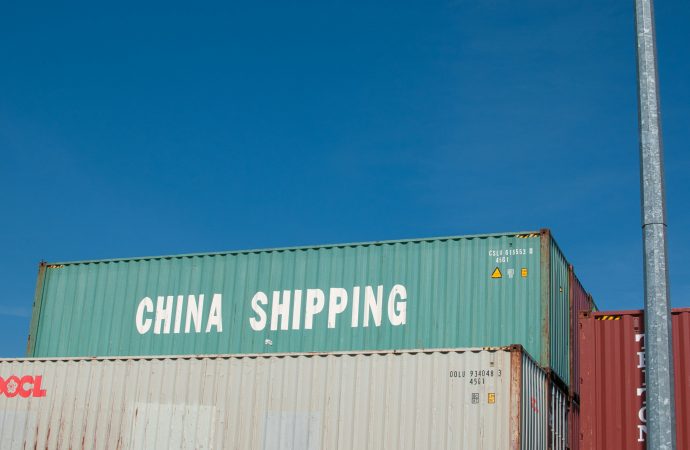by John Gruetzner and Phil Calvert
A new free trade agreement with China, in whatever form it takes, should be advanced within the context of a broader strategy for Canada’s engagement with China, particularly (but not exclusively) the strategy of expanding the commercial relationship. This should be a coherent, pan-Canadian approach with the support and active participation of provincial governments, working closely with the private sector, educational institutions, and other stakeholders.
Success in China requires consistency and sustained effort. Sustaining institutional competence is particularly important. Neither the private sector nor federal or provincial governments can afford to be rediscovering China with every change in personnel. However, despite years of an active bilateral commercial relationship, there remains a knowledge deficit on China, both in the private sector and in government. The Canadian government must lead by example.
Global Affairs Canada, already engaged in increasing its sustainable Asia competency, should conduct an assessment and a cost–benefit analysis of its current programs and practices in support of Canadian companies pursuing the Chinese market, and, in partnership with the private sector, design new, creative, cost-effective forms of support to Canadian companies. Export Development Canada (EDC), Business Development Bank of Canada (BDC), Canadian Commercial Corporation (CCC), and eventually the Canada Infrastructure Bank should include Canadian private sector representatives with significant China expertise on their boards. EDC should also be granted direct supervision of Canada’s equity in the Asian Development Bank (ADB) and the Asian Infrastructure Investment Bank (AIIB). The Department of Finance Canada and the Office of the Superintendent of Financial Institutions should work with Canadian financial institutions and the TMX to develop guidelines to improve board-level awareness of global markets, including China.
FTA negotiations involve concessions on each side and lead to mutual increases in market access. China will have its own demands, some of which will be sensitive, such as lifting investment review thresholds for state-owned enterprises. Increased market access for EU companies resulting from the Comprehensive Economic and Trade Agreement (CETA) will also be a likely reference point for Chinese negotiators. Canada must also take into account the political impact of an agreement with China on its relationship with the US. Canada must resist attempts by the Trump Administration to influence our partnership with China. But neither should a potentially negative American reaction to Canada’s seeking better commercial terms with China be underestimated. In addition, significant Canadian concessions in any renegotiation of the North American Free Trade Agreement (NAFTA) will also impact China’s negotiating agenda.
The overriding logic of improving Canada’s economic partnership with China cannot be denied. It is the world’s second largest economy and offers great potential for Canadian business. It is also a market where the costs of local capital, global and domestic competition, economies of scale, delays in the transition from a socialist market economy to a full market economy, distance, and the intellectual property framework make it difficult to navigate profitably. Improving access to China is important, but business also thrives on the path of least resistance and therefore assesses a country’s market potential not just by GDP and population base, but also by ease of doing business.
The most important rule in all commercial negotiations is to sign only if the terms and timing of the deal make sense to both parties. Deploying this rule over any political need to complete an agreement will make for a better result, as will avoiding any fixed deadline, which should keep the focus on long-term, viable results. A Canada–China agreement must service business and the public rather than politics; it must remove systemic impediments to trade and investment rather than serving as a public relations exercise. The overall outcome must deliver tangible improvements in the livelihoods of people in both countries in a manner that respects domestic social, environmental, and cultural concerns. This will require a transparent and comprehensive consultation with business, academia, civil society, and Parliament. All the federal opposition parties and provincial governments in Canada should be consulted during the development of the Canadian position and negotiating strategy.
A free trade agreement will not change the key factors that drive business success in China now: marketing, brand, quality, price, and service. Capital for Chinese state firms is generally cheaper. Canadian companies can no longer assume that closer political ties and personality politics at the leadership level can trump these basic MBA principles, either now or after a new agreement is concluded.
There are tremendous opportunities in an enhanced economic partnership with China, but we should not ignore the hard work that needs to be done in China and Canada to position companies to take advantage of them. A new framework for bilateral trade with China should be approached carefully and creatively, with our eyes fixed both on tangible benefits to Canadian business and on the broader global context. This is an initiative with great potential, but it must be advanced carefully and thoughtfully; it is not something to be rushed.
China, of course, is not the only game in town. Canadian companies will also continue to focus on pursuing opportunities in less challenging markets with stronger legal frameworks, as well as on defending existing interests against protectionist challenges. Canada’s entry into CETA with the EU, along with any changes to NAFTA, currently places high demands on the mind share, capital, and marketing team’s focus of many Canadian exporters, which are often under-resourced for significant global expansion. The cautionary note is to ensure that companies — in whose interests the agreement has been negotiated, after all — might miss new opportunities presented by an FTA with China in this rapidly shifting global economy.
John Gruetzner is the Managing Director of Intercedent, a Canadian international business advisory firm with offices in Asia.
Phil Calvert is a Senior Fellow at the University of Alberta’s China Institute and an Associate at the Centre for Asia-Pacific Initiatives at the University of Victoria. He has served as Canada’s ambassador to Thailand, Cambodia, and Laos (2012–2016), as Director-General for North Asia in Global Affairs Canada, and as Deputy Head of Mission at the Canadian Embassy in Beijing.










